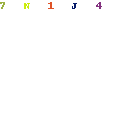Taiwan is a country located in East Asia and is known for its strong military and defense. The Republic of China Armed Forces (ROCAF) is the military branch of the country and consists of five branches: Army, Air Force, Navy, National Airborne Service Corps, and Reserve Force. The total active personnel stands at around 300,000 with an additional reserve force of around 1 million personnel. Taiwan has a higher defense budget compared to its GDP as it spends about 2.6% of its GDP on defense. The country also imports weapons from countries such as the United States, France and Germany. Taiwan also has strong ties with other countries in the region such as Japan which allows them to cooperate militarily when needed. As a result of this strong military presence in the region Taiwan has become an important regional player in security issues and is able to maintain peace and stability within East Asia effectively. See naturegnosis to learn more about the country of Taiwan.
Defense
In view of the geographical and political situation vis-角-vis China, the defense has high preparedness and is based on general military duty with an initial service of 20 months. It comprises (2006) 290,000 people with 1.6 million in reserve. The army consists of 200,000 men organized in three corps with 41 brigades, of which four are airborne. The Navy has 45,000 men with four submarines, 33 larger battleships, 70 smaller battleships, 28 land boarding boats, a naval aircraft with 32 fighter planes and 20 combat helicopters, and three naval infantry brigades with approximately 15,000 men. The Air Force consists of 45,000 men with 470 fighter aircraft. Semi-military security forces amount to 26,000 men. The equipment is modern and mainly of American origin. It is developed at domestic industries. Defense costs decreased from 7.0% to 4.9% of GDP in 1985-96 and (2006) amount to 2. To see related acronyms about this country, please check ABBREVIATIONFINDER where you can see that TWN stands for Taiwan.

Taiwan’s foreign policy
Taiwan’s foreign policy is dominated by relations with the People’s Republic of China, which, ever since the end of the civil war in 1949, determined Taiwan’s foreign policy situation. Formally, Taiwan’s own government does not even consider the island a separate state, but maintains that there is only one China, where Taiwan constitutes a province. The official definition states that “Taiwan is part of China, but not part of the People’s Republic of China”.
Although in practice Taiwan acts as an independent country with its own government, territory and voice internationally, many international organizations have refused Taiwan membership. As a result, the country is isolated, but is a member of the World Trade Organization and has observer status in some economic cooperation organizations (APEC, OECD). Taiwan is also a member of some international sports federations, including the International Olympic Committee IOC and the FIFA Football Federation.
Taiwan’s government represented China in the UN in 1950–1971, but in 1971 the General Assembly passed a resolution for the People’s Republic of China to take over this place. Diplomatically, Taiwan became increasingly isolated. The hardest hit came in 1979, when the United States normalized relations with Beijing and broke official relations with Taiwan. However, Congress passed the so-called Taiwan Relations Act, which allows for “unofficial” relations and US arms sales to Taiwan.
Since 1992, the governments of Beijing and Taipei have occasionally had some contact with each other through semi-official bodies. Despite bitter political disagreements, a process of approximation took place at the practical level. From 1987, Taiwanese citizens have been allowed to visit the mainland, and in 1990 it was opened to mass tourism. Trade between Taiwan and China was for a long time officially banned, but could be open from 1991, and the People’s Republic became Taiwan’s third largest trading partner.
Although Taiwan ranks among the world’s largest trading nations, the country is still excluded from the ASEAN countries’ free trade communities, as China does not accept Taiwan joining. As a backdrop, Taiwan is trying to establish bilateral free trade agreements with neighboring countries, but here too, China may be blocking its way.
In May 2009, however, a new sign of political hesitation came over the Taiwan Strait. Beijing then accepted that Taiwan posed as an observer during the annual conference of the World Health Organization (WHO) in Geneva. In the past, China has always blocked Taiwan from having anything to do with UN organizations, a blockade that has been going on since 1971 when Taiwan lost the UN place. Taiwan held the WHO Congress under the name “Chinese Taipei”.